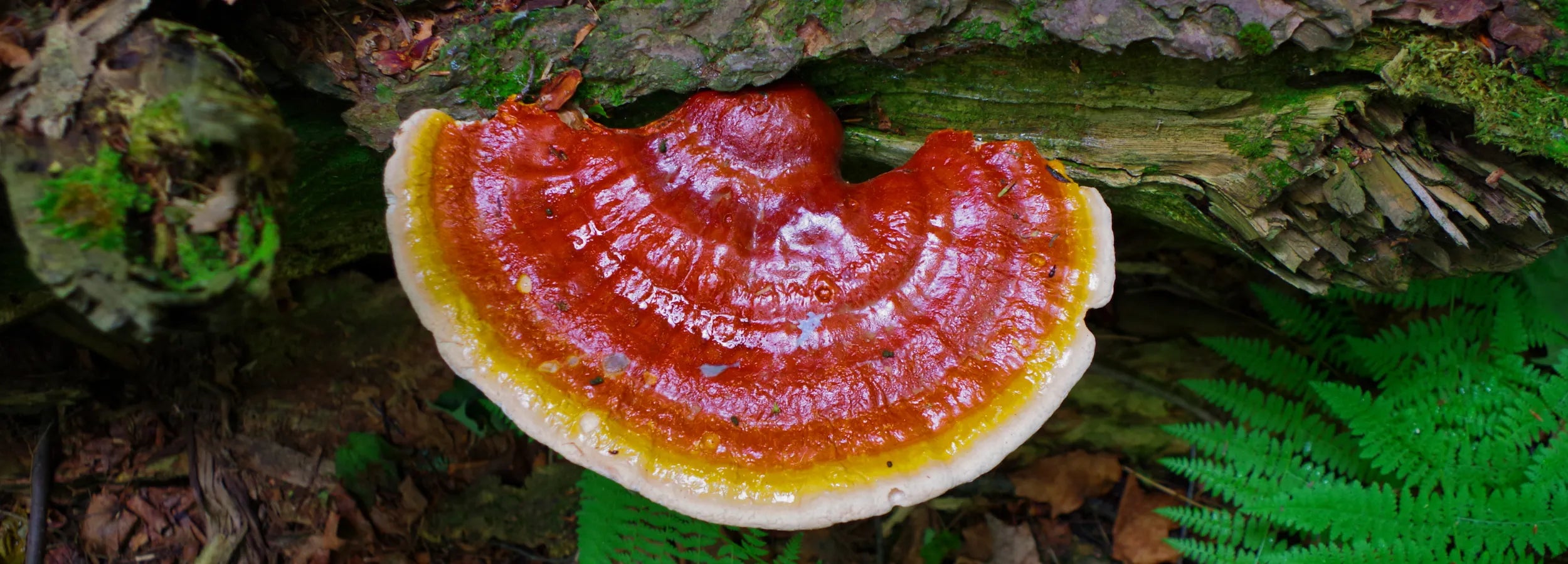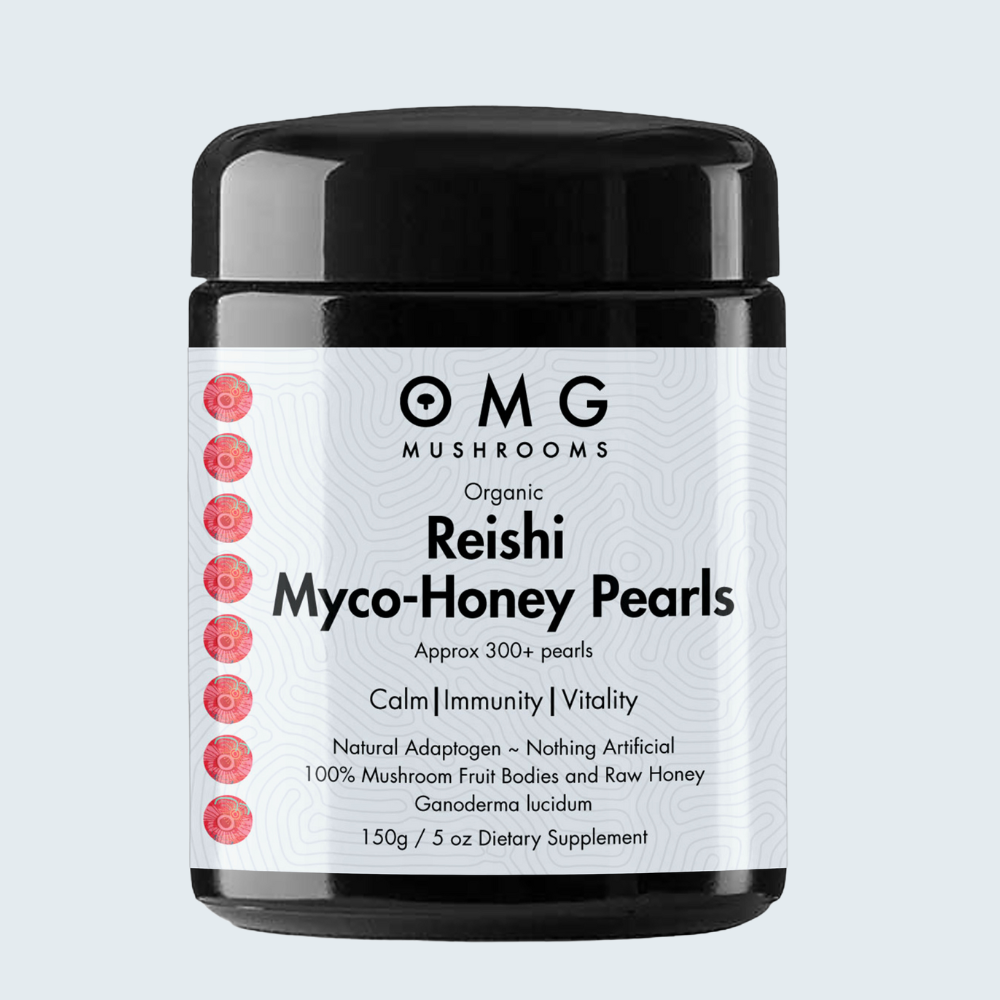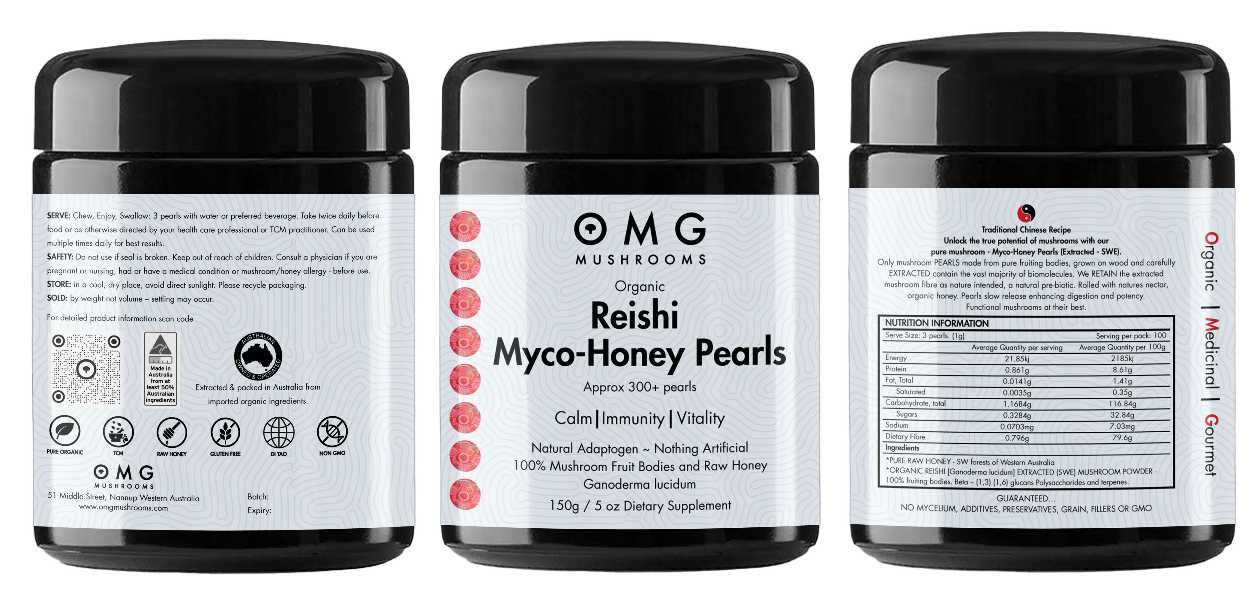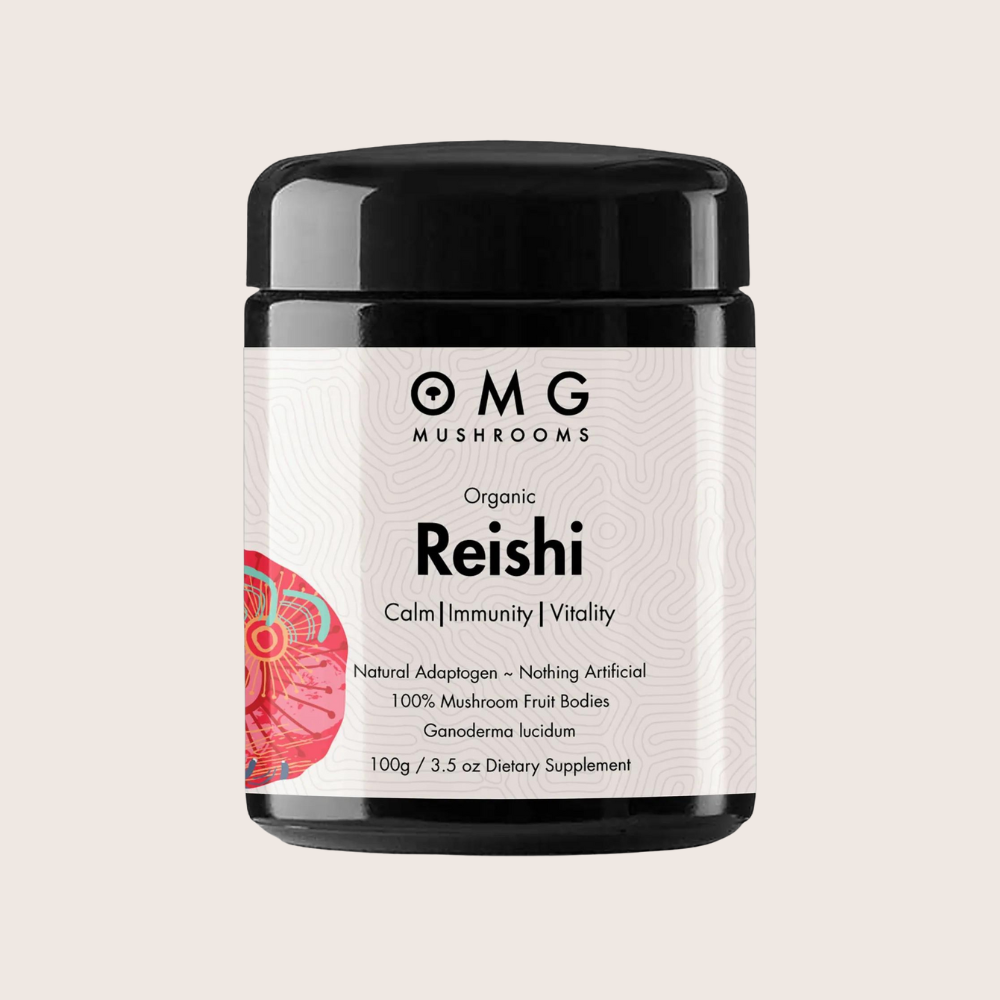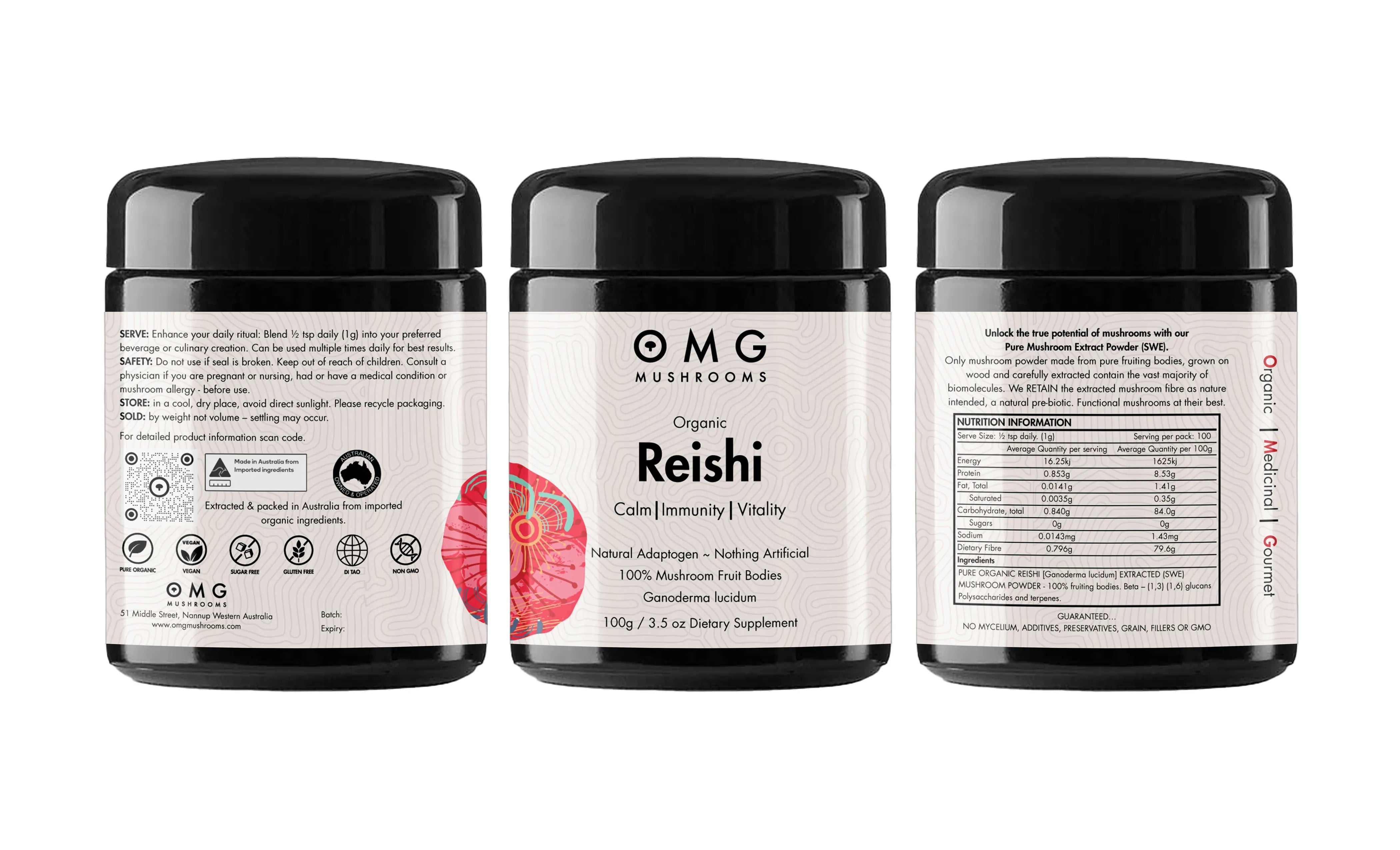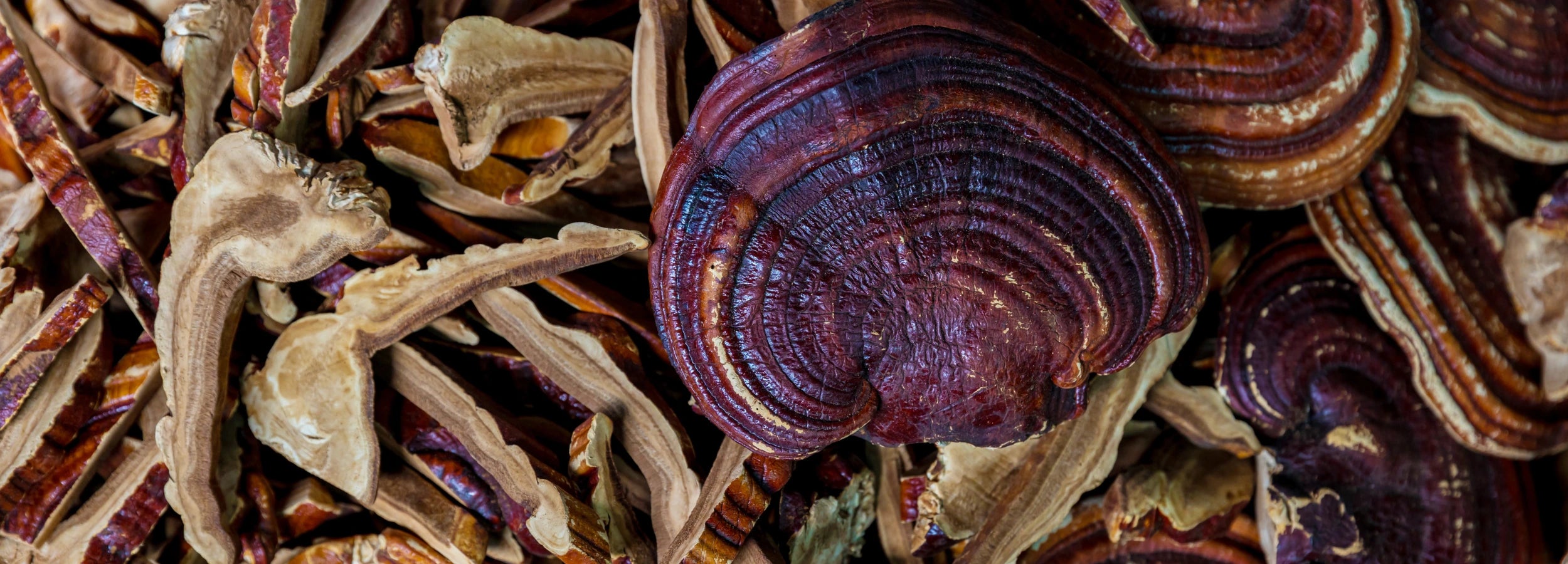Reishi - Mushroom of Immortality
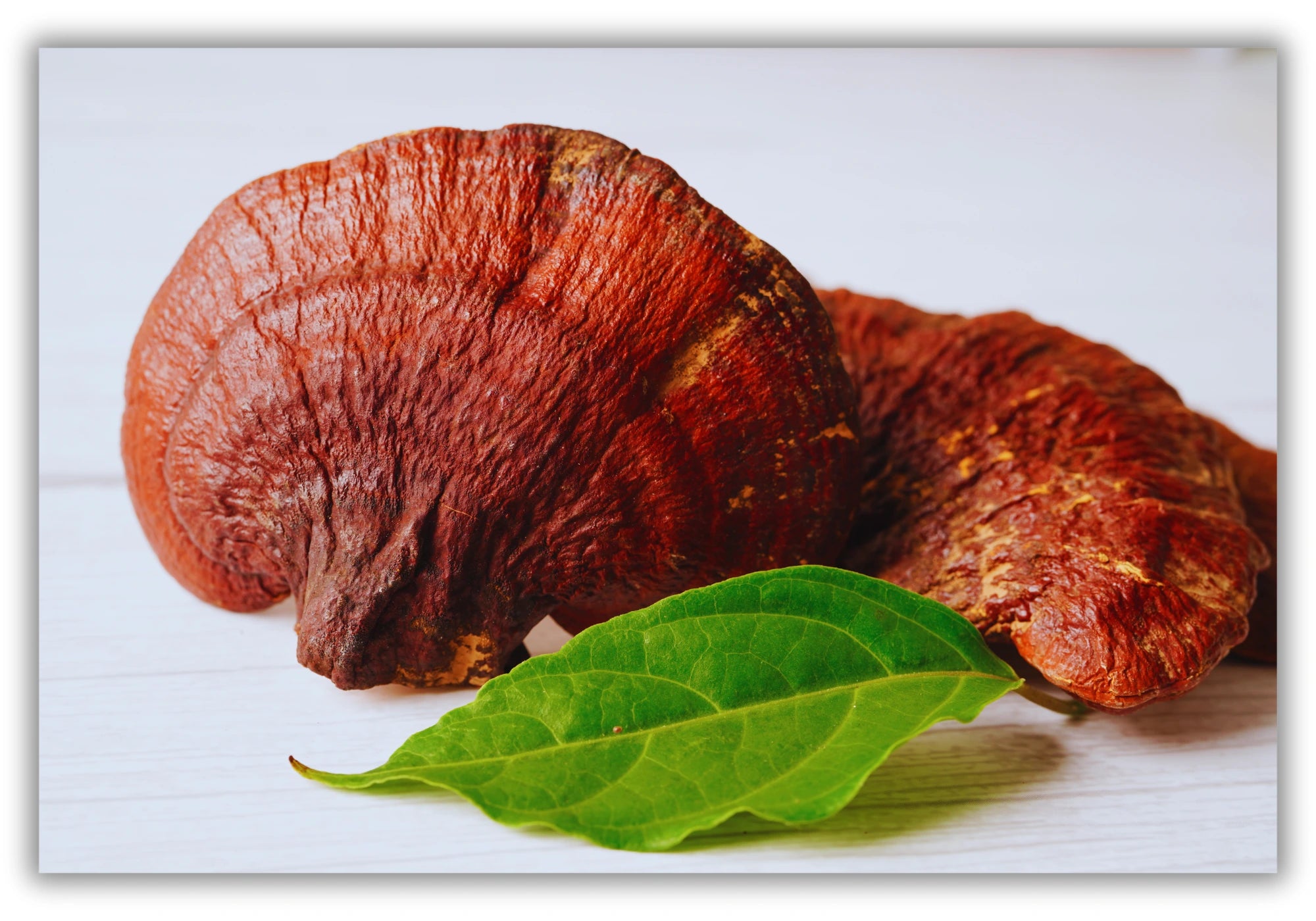
MUSHROOM OF IMMORTALITY
Reishi, also known as Ganoderma lucidum (and the King of Mushrooms), stands out as one of the most extensively studied medicinal mushrooms, with over 5,000 publications exploring its applications, history, and active biomolecules. It's remarkable benefits are attributed to key compounds, primarily polysaccharides like β-glucans and terpenes, extensively researched for over two decades. Reishi has been traditionally revered in certain cultures for promoting physical and mental balance.
With more than 400 active biomolecules, including beta-glucans and triterpenes, Reishi has become a focal point of scientific interest, demonstrating anti-aging effects, stress management, hormonal regulation, and anxiety reduction due to its anti-inflammatory and analgesic properties. Notably, Reishi's anti-tumor action in oncology has garnered widespread attention. Recent studies emphasise its rich composition, encompassing triterpenoids, polysaccharides, sterols, fatty acids, amino acids, vitamins, minerals, nucleosides, and proteins, showcasing its diverse and valuable contributions to human health.
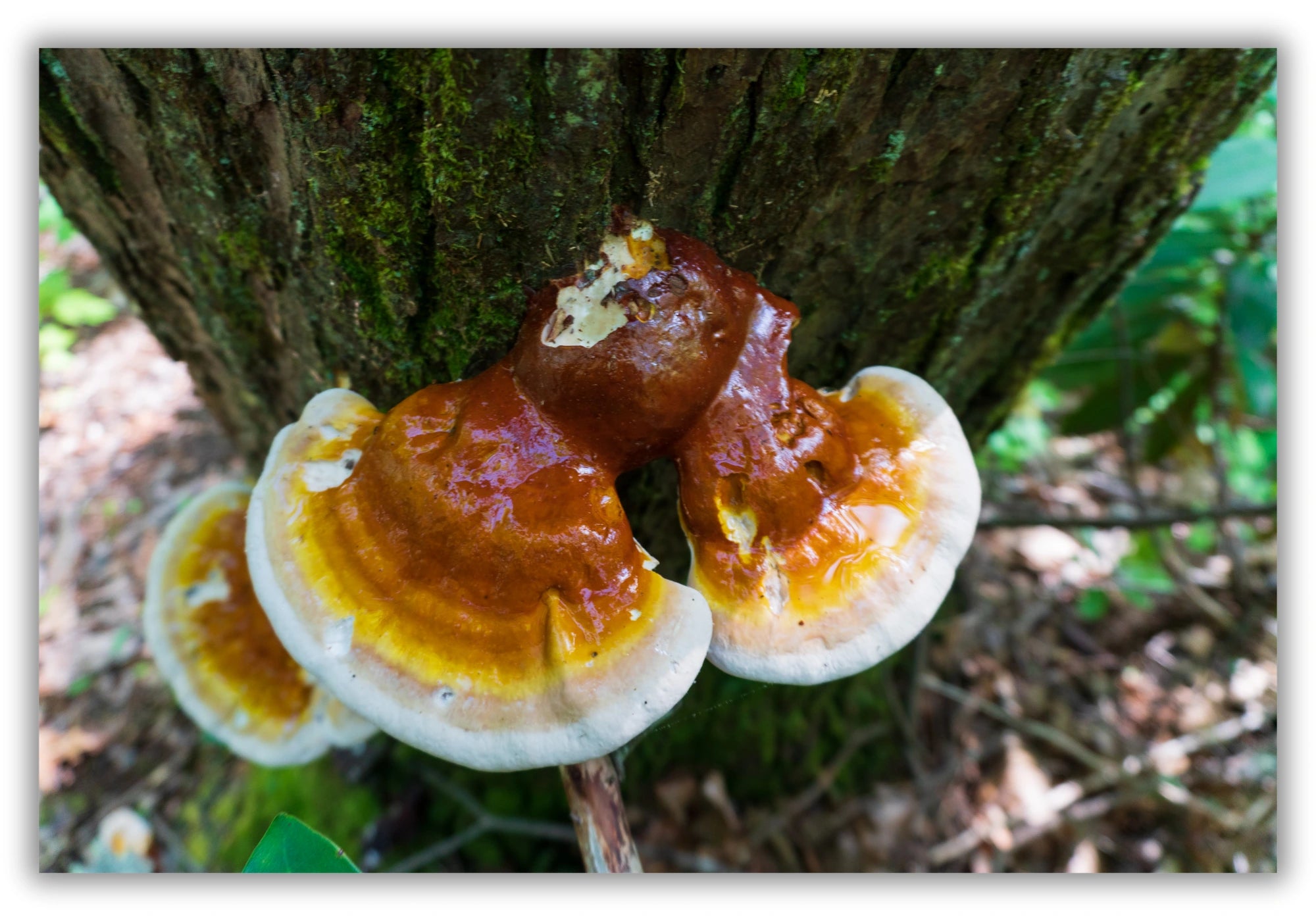
THEURAPEUTIC USE OF REISHI
The immune-boosting properties of Reishi, accredited to its betaglucans, enhance the activity of immune cells like lymphocytes, T cells, monocytes, NK cells, and dendritic cells. Its antiviral potential, particularly against various coronaviruses, hepatitis B, Epstein-Barr virus, and HIV, is attributed to its triterpenes, inhibiting HIV reverse transcriptase. Additionally, Reishi exhibits anti-allergic and anti-tumour effects through the action of polysaccharides, triterpenes, and proteoglycans.
In the realm of anti-inflammatory and antioxidant benefits, Reishi's triterpenes offer anti-inflammatory action akin to hydrocortisone but without side effects. Its recognised antioxidant potential combats free radicals, curbing cellular oxidation and aging. Renowned as a natural "anti-aging" mushroom, Reishi's properties and high antioxidant capacity contribute to overall homeostasis, particularly beneficial for the elderly.
Concerning the nervous system, Reishi demonstrates antidepressant and anxiolytic effects, acting as a serotonergic 5-HT2A receptor antagonist. Its polypeptides act as endorphin and neurotransmitter precursors, inducing relaxation through sedative and inhibitory neuronal actions. The mushroom's neuroprotective capacity stems from its outstanding antioxidant properties. In the reproductive system, Reishi plays a crucial role in hormone regulation, blocking the conversion of testosterone into dihydrotestosterone, thus addressing conditions like benign prostatic hyperplasia (BPH) and regulating hormone levels related to menopause disorders. Moving to the cardiovascular system, Reishi's hypotensive action, anti-aggregant activity, and blood oxygenation improvement contribute to its regulatory effects in vascular disorders. Lastly, in the digestive-metabolic system, Reishi exhibits hypolipidemic and hypoglycaemic effects, inhibiting cholesterol synthesis and decreasing LDL levels and triglycerides through compounds like ganoderans A and B.
PRODUCTS WITH REISHI
FUN FACTS
Ancient Royalty's Elixir: Reishi, often referred to as the "Mushroom of Immortality," was historically reserved exclusively for Chinese emperors and considered a key element in the quest for the "elixir of life."
Bioluminescent Fungus: Some species of Reishi are bioluminescent, meaning they can produce light. While this phenomenon is rare, it adds a fascinating aspect to the mushroom's mystique. This may also be why it is known as the 'Spirit Mushroom'.
Cultural Symbolism: In Eastern cultures, Reishi is not just a medicinal mushroom; it holds symbolic importance. Often depicted in art and literature, it is associated with longevity, spiritual potency, and good health.
HISTORY OF REISHI
Reishi has gained immense interest and recognition for its myriad benefits, a trend observed in other mushrooms like Shiitake, Cordyceps, Lion’s Mane, and beyond. Historical records, dating back to the 2nd millennium BC, highlight Reishi's association with the quest for the 'elixir of life,' notably presented as a gift to Emperor Quin Shi Huang Di during the construction of the Great Wall. Subsequently, these mushrooms were reserved exclusively for the Chinese emperor, solidifying Reishi's status as the "most valuable natural substance in Traditional Chinese medicine."
The historical significance of Reishi extends to the 16th century, documented in the comprehensive work on Chinese medicine by Li Shih-Chen. Its relevance continued to modern times, with focused research in the 1950s, particularly in China and Japan. Traditionally, Reishi was consumed through infusions made from dried specimens, and even today, it maintains its revered status in Traditional Chinese medicine.
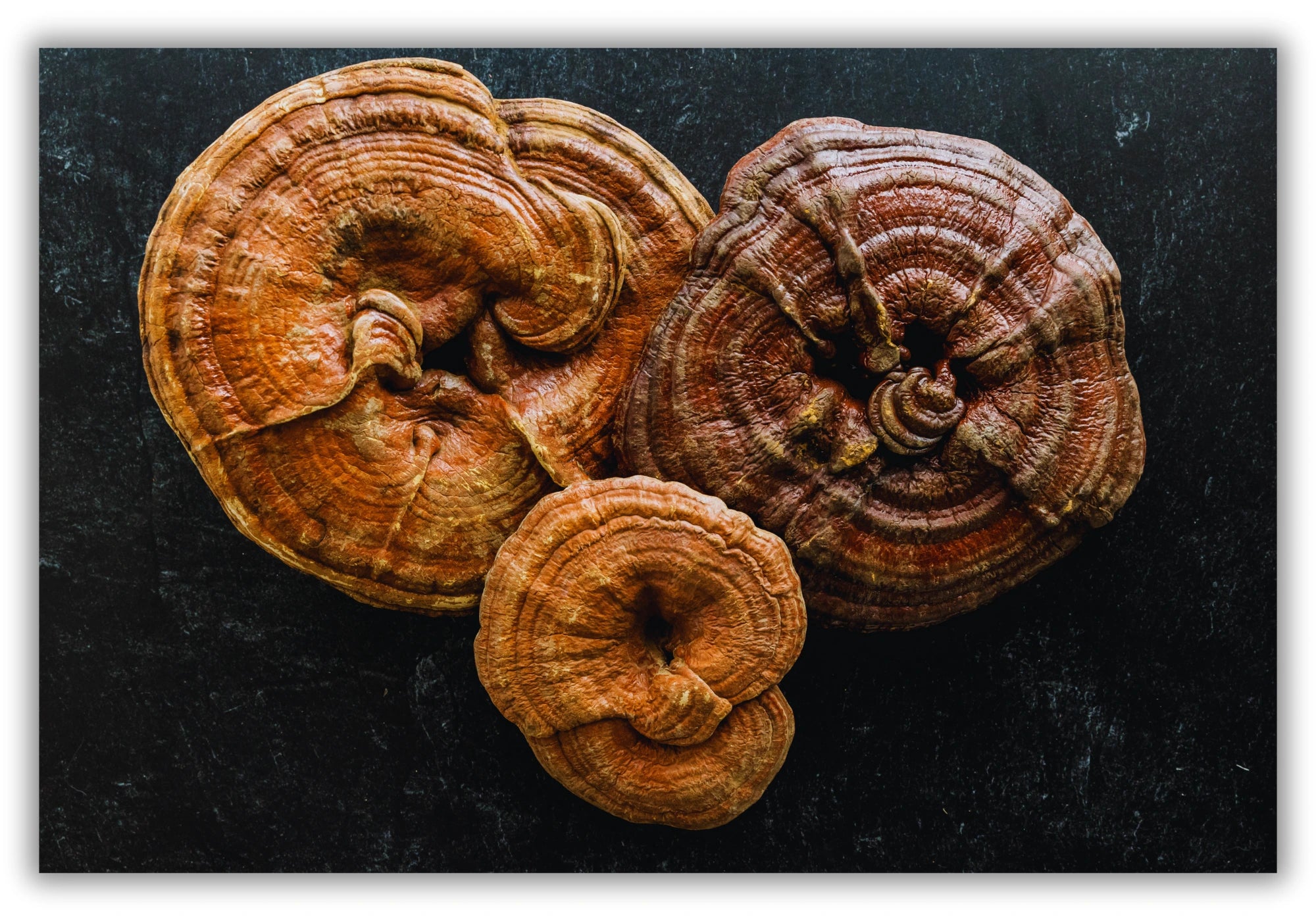
REISHI CULTIVATION
Natural Growth and Habitat:
Reishi, renowned for its medicinal properties, has a penchant for hardwood trees, creating a mutually beneficial bond with its host. Thriving in deciduous forests, particularly in oak and beech ecosystems, Reishi plays a role in the decomposition of decaying wood, drawing essential nutrients from its surroundings. Its distinct shape and color can exhibit considerable variation, and intriguingly, there are numerous tree fungi within the same genus that closely resemble this iconic medicinal mushroom. Naturally occurring in regions like Southeast Asia, Europe, and North America, Reishi's presence in the wild underscores its adaptability to diverse environmental conditions.
Commercial Cultivation Methods:
While Reishi's natural habitat involves tree logs, commercial cultivation has evolved with scientific exploration and heightened demand for its bioactive compounds. Traditional log cultivation, a method deeply rooted in history, remains prevalent for obtaining Reishi. However, the surge in interest around the mushroom's health benefits has spurred innovation in cultivation techniques. Today, Reishi is also commercially grown in controlled environments, often utilising sawdust bags for cultivation. These optimised production systems ensure a more reliable supply of Reishi, meeting the rising global demand for this revered medicinal mushroom.

